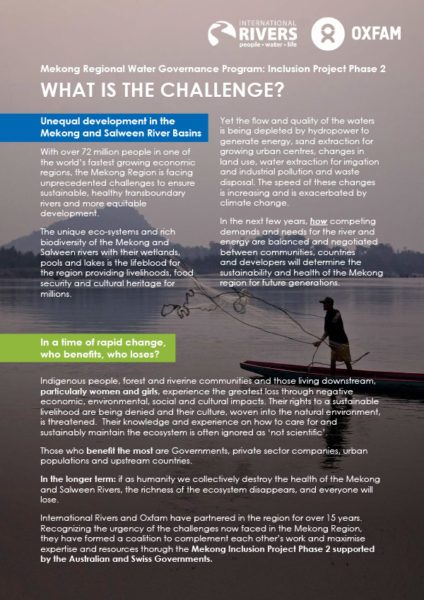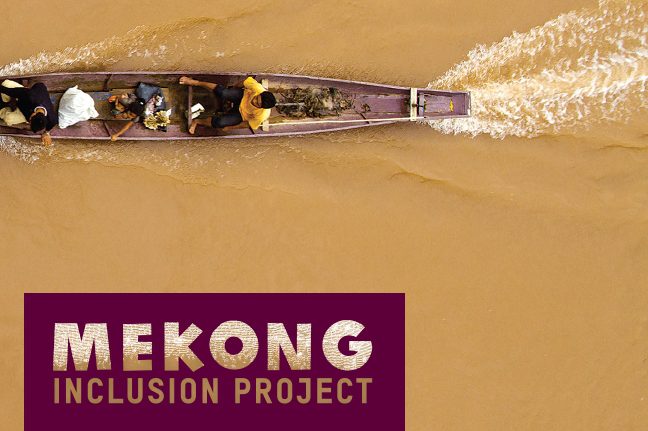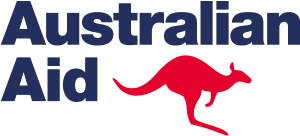Mekong Inclusion
Building on the success of the Inclusion Project, funded by the Australian Government from 2014 to 2019, Inclusion Project Phase 2 started in 2020 and is part of Oxfam’s Mekong Water Governance Program. It is funded by the Australian Government and the Swiss Government, and implemented by Oxfam and International Rivers.
Through this project we continue to support local communities in the Mekong area in Laos, Cambodia, Vietnam, Myanmar and Thailand, to engage in decision making on the water resources they rely on for their livelihood and well-being. In particular, we focus on empowering women to lead, and on policy dialogue that is inclusive of local people and civil society.
Oxfam’s work across the Mekong region with farmer and fisher communities in our Mekong Water Governance Program has consistently shown that when local people are involved in decisions about the use of their land and resources there is more likelihood that development will be equitable and sustainable. Right now, many development processes are not inclusive at all.
For instance, people whose livelihoods are reliant on water resources are generally not included in decisions on water infrastructure – such as hydropower dams. At best people may be included at the last minute when they’re forced to resettle or to adapt to new situations where their land or waters have been taken away, or fundamentally changed. The Inclusion Project Phase 2 aims to achieve more informed, transparent and accountable water resource governance and renewable energy infrastructure decision making in the Mekong region.
The project is divided in three components:
- Inclusion and gender equality: to strengthen women leaders’ capacity and promote gender analysis in policies and practices.
- Civil society engagement and networking: to connect civil society organisations, help them become more inclusive of women and minorities and strengthen their capacity to engage with national and regional actors.
- Government and private sector engagement: to foster opportunities for engagement with civil society on issues related to hydropower and renewable energy



